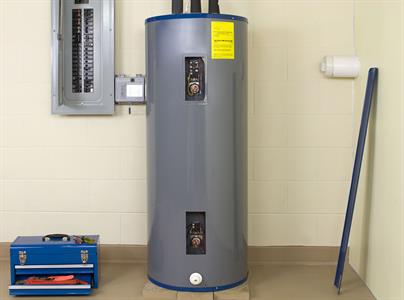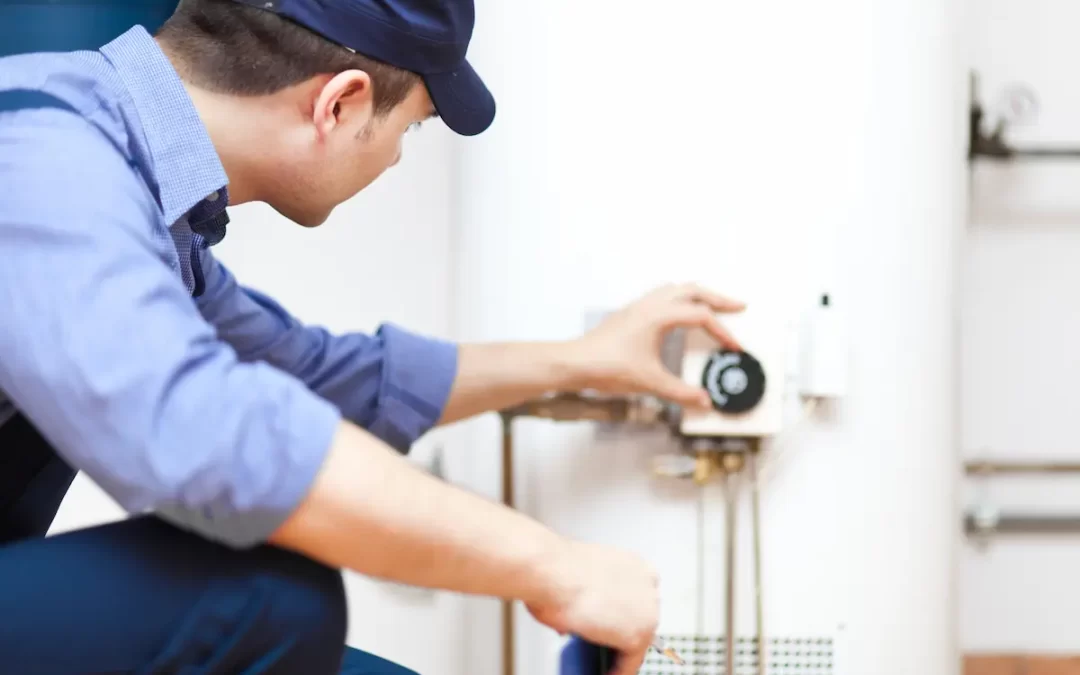If your gas water heater runs out of hot water quickly, it may be due to sediment buildup or a malfunctioning thermostat. Regular maintenance and timely repairs can help restore hot water supply.
Hot water is essential for daily tasks like showering, cooking, and cleaning. A gas water heater that runs out of hot water can disrupt your routine and cause frustration. Understanding the common reasons for this issue can help you diagnose the problem effectively.
Sediment accumulation in the tank, a faulty thermostat, or incorrect settings often lead to insufficient hot water. Regular maintenance, such as flushing the tank and checking the thermostat, can prevent this issue. Knowing these factors ensures your water heater operates efficiently, providing you with a reliable hot water supply.
Page Contents
- 1 Introduction To Rapid Hot Water Loss
- 2 Potential Causes Behind The Problem
- 3 Initial Troubleshooting Steps
- 4 Diy Fixes For The Homeowner
- 5 When To Call A Professional
- 6 Preventive Measures To Avoid Future Issues
- 7 Choosing The Right Replacement
- 8 Conclusion: Ensuring A Steady Hot Water Supply
- 9 Frequently Asked Questions
- 10 Conclusion
Introduction To Rapid Hot Water Loss
Gas water heaters can run out of hot water quickly. This can disrupt daily tasks. Common symptoms include short showers and cold water during cleaning.
Imagine washing your hands with ice-cold water. It feels uncomfortable and frustrating. Cooking can also become challenging without hot water.
Doing laundry becomes a hassle without enough hot water. Many people rely on hot water for everyday tasks. Rapid hot water loss can affect your comfort and routine.
Potential Causes Behind The Problem
Sediment buildup in the tank can block hot water flow. This happens when minerals settle at the bottom. Flushing the tank regularly helps prevent this issue.
Faulty heating elements can also cause quick hot water depletion. If one element fails, the remaining one works harder. This can lead to faster hot water loss.
Issues with the thermostat can affect water temperature. A malfunctioning thermostat may not heat water properly. Regular checks and adjustments can help maintain consistent hot water supply.
Initial Troubleshooting Steps
Check your water usage first. High demand may cause the heater to run out of hot water. Take note of how many people use hot water in your home.
Next, inspect for leaks. Look for signs of water around the heater. Leaks can reduce hot water availability and damage your heater.
Finally, evaluate the heater age. Most heaters last about 8 to 12 years. An older heater may not work efficiently. Consider replacing it if it’s too old.
Credit: www.quora.com
Diy Fixes For The Homeowner
Flushing the tank can help remove sediment buildup. Sediment can cause your heater to work poorly. Turn off the power and water supply. Use a garden hose to drain the tank.
Replacing the thermostat may solve hot water issues. A faulty thermostat can misread temperatures. Check the settings and replace it if needed. This is often an easy DIY task.
Heating element maintenance is essential for hot water. Check for burnt-out elements. Use a multimeter to test each element. Replace any that are not functioning properly.
When To Call A Professional
Complex electrical problems can cause hot water issues. If you notice unusual sounds or lights, call for help. These problems can be dangerous and may need expert care.
Tank replacement might be necessary if the heater is old or damaged. Signs of wear include rust and leaks. A professional can determine if a new tank is needed.
Safety considerations are very important. Gas leaks can lead to serious problems. Always check for gas odors and ensure proper ventilation. If in doubt, contact a professional immediately.
Preventive Measures To Avoid Future Issues
To keep your gas water heater running well, a regular maintenance schedule is key. Check the heater at least once a year. This helps remove dirt and rust. Cleaning the burner ensures efficient heating. Inspect the anode rod and replace it if needed. This rod prevents corrosion.
Consider upgrading your system for better performance. New models offer higher efficiency. They heat water faster and use less energy. Look for options with better insulation. This keeps water hot longer.
Installing water softeners can also help. Hard water causes mineral buildup. This buildup can make your heater less effective. Softened water reduces this problem. It helps your heater last longer and work better.
Choosing The Right Replacement
Choosing the right replacement for a gas water heater is important. Tank water heaters store hot water in a tank. They can run out quickly if used heavily. Tankless water heaters heat water on demand. They provide a constant supply of hot water.
Energy efficiency matters too. Tankless heaters usually save more energy than tank models. This can lower your utility bills over time. Check the energy rating before buying.
Size and capacity are also key factors. Tank heaters come in different sizes. Choose one that fits your family’s needs. Tankless models save space. They can fit in small areas.

Credit: www.allproplumbers.com
Conclusion: Ensuring A Steady Hot Water Supply
Regular maintenance of a gas water heater ensures a steady hot water supply. This includes checking the thermostat and flushing the tank. Proper maintenance can prevent sudden shortages of hot water.
Some simple solutions include:
- Insulating the hot water pipes
- Adjusting the thermostat to 120°F
- Flushing the tank annually
These steps can extend the life of your heater. They also improve energy efficiency. A well-maintained water heater can save money on energy bills.
Investing time in maintenance leads to long-term benefits. Enjoy consistent hot water and reduce repair costs. A reliable water heater adds comfort to daily life.

Credit: www.rootermancan.com
Frequently Asked Questions
Why Does My Hot Water Heater Run Out Of Hot Water So Fast?
Your hot water heater may run out of hot water quickly due to sediment buildup, a malfunctioning thermostat, or undersized units. Frequent high-demand usage can also deplete hot water rapidly. Regular maintenance can help improve efficiency and extend hot water availability.
Why Does My Gas Hot Water Run Out So Fast?
Your gas hot water may run out quickly due to a faulty thermostat, sediment buildup, or a small tank size. Frequent use by multiple people can also deplete hot water faster. Regular maintenance and checking for leaks can help improve hot water availability.
Why Is My Gas Water Heater Losing Hot Water?
Your gas water heater may lose hot water due to a faulty thermostat, sediment buildup, or a malfunctioning dip tube. Insufficient gas supply or a damaged heating element can also cause this issue. Regular maintenance can help prevent these problems and ensure consistent hot water availability.
Why Does My Gas Water Heater Get Too Hot Then Shut Off?
A gas water heater may overheat and shut off due to a faulty thermostat, a blocked vent, or sediment buildup. These issues can disrupt temperature regulation and safety mechanisms. Regular maintenance and inspections can help prevent overheating and ensure proper functioning.
Conclusion
Experiencing frequent hot water shortages can be frustrating. Understanding the common causes is essential for effective solutions. Regular maintenance and timely repairs can enhance your gas water heater’s performance. Addressing these issues promptly ensures a steady supply of hot water.
Stay informed to enjoy uninterrupted comfort in your home.
